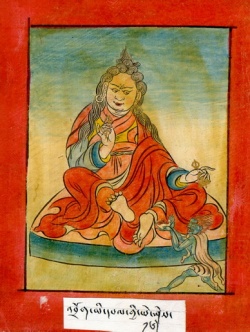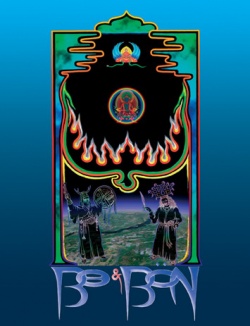Tibetan Buddhist Psychology and Psychotherapy
Tibetan psychotherapy is unlike the Western approach. It is basically related to the Buddhist concept of the mind and its approach to understand the mind and its nature. Especially, it looks to the mind and mental health in its purely philosophical and spiritual bases. Its soft approach and development of human natural psychology gives way to the understanding of many causes of psychological disequilibrium.
The Tibetan Medical psychiatry concept is slightly different from the etiology of three humors, which principally derives from the mind and emotions. The three humors are the internal factors that produce delusions, which then become the basic cause of psychological and psychiatric diseases. Mind is like a mirror, which shows the different appearances of the mood such as serenity or unhappiness. In the Buddhist philosophy, the internal mental delusions are labeled as demons and spirits. Their cause is the misconception and misunderstanding of the mind by the mind itself. Therefore the fundamental point is that in mentally disturbed people, the mind is lost in illusions and it interprets them wrongly, or it sees them as reality.
The Tibetan medical psychiatry, based on the Buddhist philosophical ground, also models the illusion and hallucination appearances and experiences of the patients under the form of spirits and demons. However in the Tibetan psychiatry concept, disorders are also related to external terrestrial spirits or negative energy influences. Gyud-shi, the “four tantras”, describes the external (invisible) forces and evil spirit or demonic influences that disturb the internal environment.
Psychiatric disorders internal factors:
• Basic mental disequilibrium (psychological factors)
• Three humors pathology
External terrestrial forces:
• Evil spirits (demonic forces)
• Microbes
• Intoxication
In this context, Tibetan physicians have made many researches and experimentations, and expressed the cause of the many mild and aggressive psychiatric disorders as being related to the external environment influences. Their descriptions of the causes are more based on the patients’ psychic symptoms than on the Buddhist philosophical concept. Tibetan Medicine accepts that the diseased mind is not only disturbed by psychological imbalance of anger or depression; many other factors, visible and invisible, also influence the mind directly and indirectly through the body contact.
The psychiatric disease in Tibetan Medicine
In Tibetan Medicine, a psychiatric disease appears when the mind and its subtle wind, which circulate in the mind channels, are disturbed and function abnormally, thus causing changes in the person’s body/mind character. The third tantra says:
" A person’s body, mind and speech behaviors change into negative if he is possessed by spirit or madness".
The psychiatric disease may be divided in two distinctive sections:
• Mental disequilibrium (mild psychological disorders mainly, belonging to wind disorders in Tibetan medicine)
• Insanity (psychopathic and psychotic disorders)
The latter has two sub-sections:
o Demonic possessions (possessions and schizophrenia)
o Madness
Demonic possession
A spirit can enter into the body through the ring finger and go to the heart via the ear consciousness channel. It then invades and occupies the seat of the mental consciousness, and rules the kingdom of the body/mind. Under the madness or possession influences, hallucinations may appear and change the person’s world perception and experience.
There are many psychiatric disorders with their sub-classifications, but the following ones are the five major mild and aggressive mental disorders:
1. Jungpo ('byungpo) possession by spirits (18 evil spirits)
2. Myowa (smyobyed) madness (7 types psychiatric disorders)
3. Jedjed (rjedrjed) forgetfulness disease caused by strokes (Mirkhi)
4. Za (gza') epilepsy (celestial negative energy)
5. Lu (Klu) Naga spirit possession (undrground negative energy)
The Tibetan Medical psychiatry literature describes various methods and therapies to cure the diseases according to their origin and pathological conditions. In short, the following methods can be applied to recover from the imbalance of mind and restore the body kingdom.
• Medication
• Nutrition
• Change of lifestyle
• Golden needle
• Moxibustion
• Mantra recitation
• rite and rituals
• Soul retrieval
• Meditation
• Tibetan Yoga
• Maning Hadhon practice
• Bodhicitta cultivation
• Receive initiation
• Wear amulets
• Use of incenses
• Oil massage, etc



